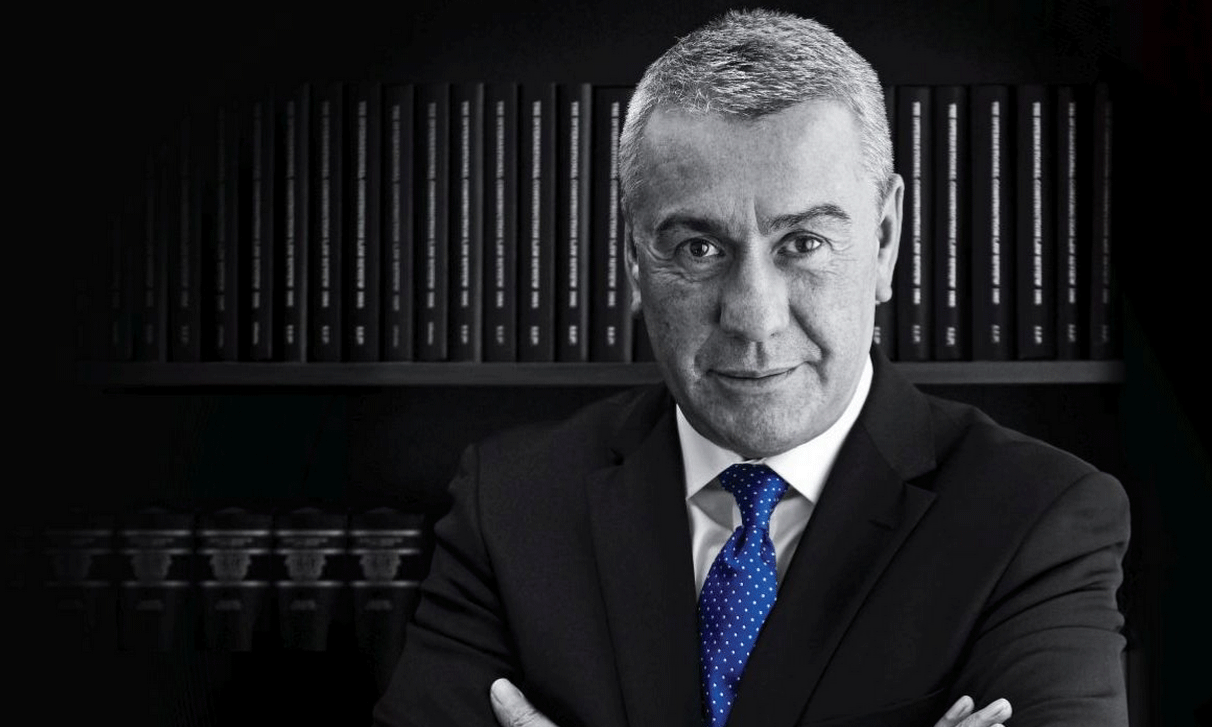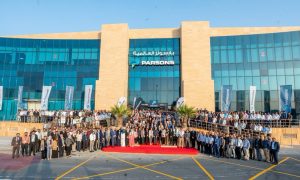Claims culture: Hill International’s David Merritt on how dispute resolution is maturing
“Dispute resolution often involved sheesha and coffee in a majilis… Things are different now,” says Merritt

Having taken on an expanded role as senior vice president and regional managing director Middle East and Africa for Hill International Claims Group, David Merritt is now frequently jetting off to far-flung destinations.
Yet despite his early morning flight from South Africa, Merritt is wide-eyed and eager to talk about the latest goings-on at the company.
“I spend a fair bit of time in South Africa at the moment,” he explains. “We acquired a business, Binnington Copeland and Associates, last year so we have a lot of interaction with our South African business.”
Hill International took over the African company on May 31 2013, with Merritt assuming responsibility at the same time, in addition to his duties as head of the Middle East region. Merritt recounts how he started his construction industry career as a trainee quantity surveyor for UK contractor Cementation, before moving onto Wiltshier Construction (now part of the Dutch group Ballast Nedham).
During this time, Merritt studied for his RICS exams on a part-time basis, followed by a two-year stint in Dar es Salaam, Tanzania, with Wade Adams. On returning to the UK he joined Schofield Lothian, where he first took an interest in claims and dispute resolution.
He explains: “I was seconded to Schofield Lothian’s Hong Kong office for three years and spent my time working on some big claims for the Mass Transit Rail Corporation, Aoki and the Airport Authority. I spent 12 months preparing a claim which didn’t settle and went to arbitration. Lawyers turned up, said ‘Thank you very much,’ and I had no more involvement, which was very frustrating. I knew then I wanted to get a formal legal qualification, so I went back to university and then on to Bar school before I qualified as a barrister in 1999. That whole process was a hard slog – seven years of part-time and full-time studying.”
Yet despite his legal training, Merritt states that he is first and foremost a construction professional. “I enjoy construction and engineering projects – I’ve been doing it for 27 years now, and I enjoy problem-solving. I consider myself a construction professional rather than a lawyer, but the legal training has made me a lot better at what I do.”
His dual qualifications in quantity surveying and law made Merritt a perfect fit for the claims group of Hill International, a business which sits between the technical and the legal side of the construction industry. Merritt continues: “We can go and talk to a contractor about his claims and disputes and understand the technical aspects better than a lawyer.
Equally, we can discuss the legal and contractual with the legal team. At Hill, most of our consultants are technically qualified with a formal legal qualification.”
Hill International was founded as a pure claims consultant by Irv Richter in 1976. “Irv really did pioneer the concept of the modern claims consultant, and from those earlier roots the whole Hill empire has taken shape,” adds Merritt.
The company’s claims expertise was later bolstered by a move into project management and today the firm has a combined workforce of 4,600 employees across 100 offices.
Hill Claims now boasts 600 consultants, making it the biggest claims consultancy in the world.
He adds that the claims market has changed considerably in Dubai during his time in the Emirates. “When I first arrived in the Middle East seven years ago, there wasn’t a culture of claims – people will argue whether that’s good or bad.”
A highly informal dispute resolution process used to exist in the regional construction and engineering industry, as Merritt explains. “While it’s a cliché, dispute resolution often involved a sheesha and a coffee in a majilis – two people sorting out their differences amicably.
“Things are different now, particularly in the UAE. The construction industry has grown and matured immeasurably, and so have the claims and dispute resolution practices that attach to it. Construction is a risky business, wherever you are, but the Middle East does pose some particular problems.”
One of the key issues in the Middle East, and often a contributing factor towards a claim, is the prototypical nature of projects in the region. Merritt remarks: “The vast scale and engineering challenges posed by some of the more iconic projects means that technical boundaries are consistently being pushed. This often means more risks are being taken and delays in construction are commonplace.”
He continues: “Another challenge for contractors working in the Middle East is that employers not only want their unique and iconic project, but they also want it tomorrow. I’m consistently amazed at the abridged timeframes in which contractors are required to complete projects.
“Contractors’ baseline programmes are often way too aggressive, with little to no float built in for the unforeseen. This means that delays are often critical and project completion dates are missed, and additional costs are incurred by all parties.”
Projects that are not fully designed before construction often give rise to claims, according to Merritt. “I also think that projects tend to come to construction too early – most projects are only partially designed when tenders are awarded and construction begins. Design development takes place during the progress of the works, which means that change and variations to the scope of works is the norm. This in turn normally causes delay and disruption to the progress of the works.”
He points out that many construction companies have shied away from entering the Middle East due to the lack of transparent legal systems. “Overall, the Middle East remains a risky place to do business, too risky for many risk-adverse American and European contractors who are now not as active in the region as they once were. Certainty of payment remains a big issue for many Western companies. In the United States and Europe, you have open and transparent legal systems together with established arbitral laws underpinning most commercial relationships, whereas the same cannot always be said of some GCC countries.”
Yet those American and European companies that have entered the region have imported a claims know-how and a Western culture of contractual entitlement. Merritt continues: “When I arrived in the UAE, Hill International had just 35 claims consultants; and now, across our seven Middle East offices, we have 220 staff. It shows how far Hill International Claims in the Middle East has come as a business in a relatively short space of time.”
Although Dubai has matured, the claims culture is not equally developed across the various countries in the Middle East. “Qatar is probably where Dubai was five years ago – it does not have an established claims culture, although that is slowly changing. The same can be said for Saudi Arabia, whereas Oman and Bahrain are more aligned with the trend in the UAE.”
According to Merritt, the day-to-day activities of a claims consultant involve a high degree of stress. “You normally get involved in a tense situation where big money is at stake. For instance, an employer is not going to get his building on time and the contractor is denying any responsibility for those delays and making his own claims. Emotions are often running high when we get involved.
“We have to take a step back from the front line – we have a job to do and we know how to go about it. We carry out a forensic assessment and establish culpability – who’s responsible for what. This involves reviewing all the contemporary data, the contract, the baseline programme, the costs, and talking to the relevant people. It can be quite formulaic in terms of the steps to take, but the actual issues are always different.”
He says that the job satisfaction comes from helping the parties to resolves their issues, without the need to go to arbitration. “We’ve been involved in so many arbitrations and seen how disruptive it is to the respective businesses. It is timeconsuming, stressful, expensive and probably best avoided.
The whole process is not conducive to ongoing business relationships, but sometimes it’s the only resort. If we can help clients avoid arbitration, that’s always good.”
When it comes to the credentials needed to be a claims consultant, Merritt says there are no set rules. He explains: “There was, and is, a theory that you can’t be a good claims consultant unless you’ve got 10-15 years of technical experience on construction sites. If we were recruiting ten years ago, you looked for that, but things are changing. We are seeing a lot of graduates or relatively inexperienced professionals who want to be claims consultants. You ignore them at your peril, because some of them are really smart and switched on.
“The theory was that lawyers don’t make good claims consultants, but we have ones that have wanted to make the transition and done it so well. They are intelligent professionals and they adapt.”
While engineers generally have the analytical skills required for claims, Merritt states that quantity surveyors are the most likely consultants to make the switch. “When I did my RICS exams, law and contract administration were a big part of the training. You weren’t just scratching the surface of these subjects.
There is the commercial aspect to being a quantity surveyor – you are trained as a commercial practitioner, which is important as a claims consultant.”
However, it is rare for designers to make the transition, according to Merritt. “We don’t see too many architects and they tend not to make great claims consultants, although there are always the odd exceptions.”
A recent source of promising cost consultants has arisen from Hill International’s new links to South Africa. Merritt remarks: “We’ve brought talented people over here and fast-tracked them into claims. They get involved in the jobs and then they go back to South Africa. I’ve really enjoyed working with them. In our firm, there’s no one-size-fits-all claims consultant.”
























